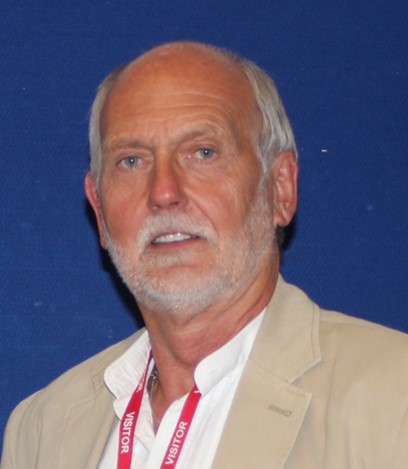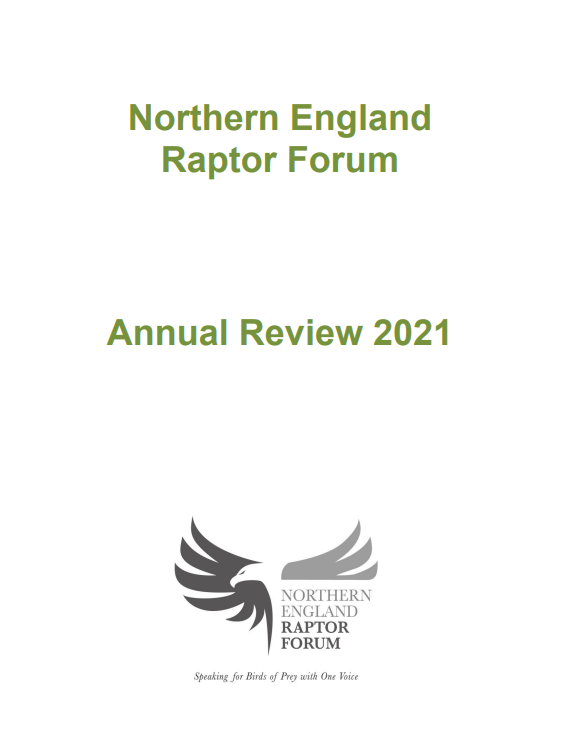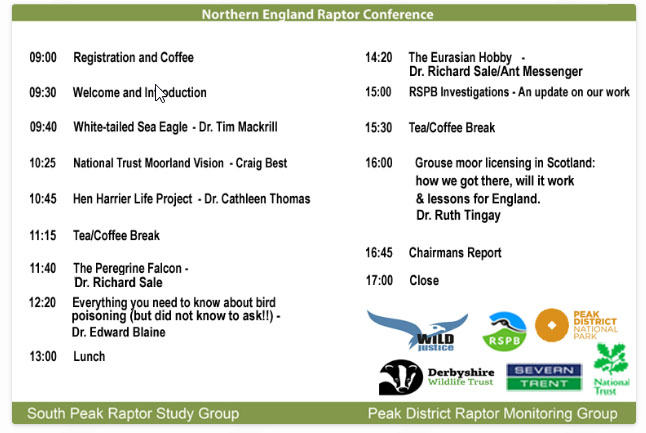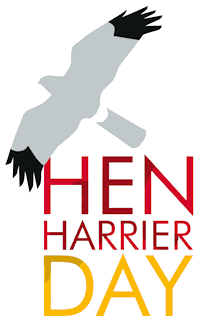Steve Downing is the Chair of the Northern England Raptor Forum (NERF), established in 2006 to provide a single collective voice representing the conservation interests of raptors throughout the North of England, through surveying, monitoring, and protecting birds of prey. Their Annual Review, published since 2009, is the most comprehensive dataset that exists of presence and breeding success of raptors.
Ahead of the first annual conference since 2019, at which HHA’s chair Dr Cathleen Thomas is speaking, we caught up with Steve to learn more about the conference and his views on the status of raptors in the North.

HHA: What prompted your interest in birds of prey?
Throughout my life I have spent time out in the environment, climbing, running and in mountainous terrain all over Europe. That stimulated my interest in the natural world from a young age. I joined Greenpeace in the early 1970’s (which was quite unusual for a cop!) and I was concerned even then that things weren’t going well for the environment.
As a serving police officer, when the role of Wildlife Crime Officer came up, I felt that here was an opportunity to make a difference in protecting vulnerable birds of prey. It was clear to me very early on in that role that we, the Police, couldn’t do it alone, we needed engagement with the public. So I formed a partnership with some folk in the local bird group to improve the protection of birds of prey in the Calder Valley, initially. I then started to replicate that throughout West Yorkshire.
Over time, it developed from a personal interest to a calling, really.
We started out by marking eggs (to put off egg collectors), setting up nest cameras, getting local bird groups to monitor nests in a systematic way. And over time, we felt that if it could work in West Yorkshire, it would work in other areas, so I started attending raptor study group conferences. At one of the conferences, I called a meeting and floated the idea of pulling together all the study groups to work collaboratively, which marked the beginning of the Northern England Raptor Forum.
From 2004 to 2008, I was working in the National Wildlife Crime Unit specifically dealing with Hen Harrier persecution. In fact, that was the beginning of it – there were only three of us to start with, based in London, but working from home.
We're a much more vocal group, defending birds of prey

HHA: NERF was officially formed in 2006, and you’ve been involved since the very start. Has the nature of the work changed over time?
Initially, all the local raptor groups monitored the local populations independently and carried out ringing activities working with BTO. But from 2009, we started to collectively publish comprehensive statistics in the Annual Reviews, and that became the biggest raptor monitoring dataset in England and Wales. And it gave us a louder voice – with Government, and with other influencers.
Now NERF has morphed into more of an advocacy role. As well as the vital task of data collection, we are sitting on key groups and panels, initially with the Buzzard Stakeholder Group and latterly with the Raptor Persecution Priority Delivery Group. We were partner of the year with the Partnership for Action Against Wildlife Crime (PAW) in 2014, working with the police and government agencies. The award was given in recognition for the more than 50,000 voluntary hours devoted by members of NERF to surveying, monitoring, and protecting birds of prey throughout the North of England. We also work with the four National Park Authorities and with the AONB management teams in the North of England.
We’ve changed significantly over time, and we’re a much more vocal group defending birds of prey. We are just about to embark on our own Short-eared Owl satellite tagging project, which will be the first of its kind in England. SEOs is a scarce breeding bird in Britain and they wander widely. This is a very exciting project that will provide data to help us understand how individuals breeding in the NERF raptor study area interact with the wider European population.
HHA: Do you feel more or less optimistic about the future for birds of prey now?
Some species are doing really well. The Buzzard population has increased, largely because poisoning is declining. The Red Kite is doing OK in some areas, but in Nidderdale and parts of the Durham Dales they are still persecuted. Goshawks are on the increase in some areas; but they are inexplicably absent from large areas of suitable habitat across the North of England unless persecution is the cause.
But Hen Harriers, as you know, are really struggling, despite what Natural England or the shooting industry would have us believe. The numbers of birds disappearing on or near grouse moors is staggering and is continuing unabated. These birds are really under pressure, you can’t ignore the statistics.
So, for some species I am optimistic, but for others, despite all the efforts and the really good work that some organisations are doing, including your own, the RSPB’s satellite tagging project and NERF, these birds are not doing well at all. If you look at the geographic spread, they are still largely confined to the same protected landscapes such as the Kielder Forest and on United Utilities in the Forest of Bowland where they are safe from persecution.
HHA: I believe that this is the first NERF annual conference that you have been able to hold for some time.
Yes, the last one was in 2019, before the Covid-19 pandemic. I am looking forward to this conference immensely. Raptor work can be a very solitary lifestyle, and to get people together to share knowledge is priceless. There will be 150+ delegates in that room, with thousands of years of experience that can be shared.
I like to go to conferences to learn things – I’m not there to be entertained so gatherings like the NERF conference are invaluable opportunities for me to improve my own raptor knowledge and to hear about how new technology can help us, and the birds of prey, going forward.
Raptor workers are a very dedicated and driven group of people
HHA: Which sessions are you most looking forward to?
I’m looking forward to all of them, of course, but I am personally very excited about the presentation on The Hobby, because we don’t see many in Calderdale. I’m also looking forward to listening to Ruth Tingay’s speech, which closes the conference, because I want to know how the Scottish Raptor Study Group went about successfully pressing for changes in legislation in Scotland.
We don’t have quite the same access to Government that the Scottish Raptor Study Group and the RSPB Investigations Team does in Scotland. We need to learn from their efforts. We will have a change in Government in England at some point, and we need to be ready for that; ready to press for positive changes to help our wonderful birds of prey.
And of course, I’m looking forward to Cathleen’s session. I worked for Cathleen on the RSPB / EU LIFE Hen Harrier project. This is my 20th year of working on Hen Harriers, so it will be interesting to learn what Hen Harrier Action is planning for the future.
HHA: Are you hoping that the delegates will come away from the conference re-enthused and re-energised?
Well, raptor workers are a very dedicated and driven group of people. They’re hard-core, so they’ll be coming to learn new information and re-connect with friends they haven’t seen for a while. But I also hope that the delegates attending the conference who are not already members of NERF will come away encouraged to sign up with their local raptor study group.

These are 'our birds' and they deserve the right to life just like we do
HHA: With the new legislation on the horizon in Scotland, and new snare legislation already on the statute books in Wales, how close do you think we are in England to getting better protection for birds of prey and upland wildlife?
We’re nowhere near, really, and that is tragic. Nobody is asking for the world here – the legislation to protect birds of prey is already there, it’s been there for over 40 years. This Government are laggards, and it is their duty to protect our wildlife and our natural environment. Government Ministers need to step up and do their jobs. Where wildlife protection legislation is weak they need to strengthen it. If there is a gap in the legislation they need to fill it and where the Police require additional enforcement powers they should be provided.
HHA: What can the wider public do?
I would say to the public – “this is your habitat, you live in this habitat, you share this habitat with every other living thing, and we all need to look after it. Write to your MP, tell them about a persecution story you have seen online or on the TV. These are ‘our birds’, and they deserve the right to life just like we do. Remind him or her that you put them into Parliament to represent your views, and that you want them to do just that. Not what vested shooting interests want, but what the public wants.”
